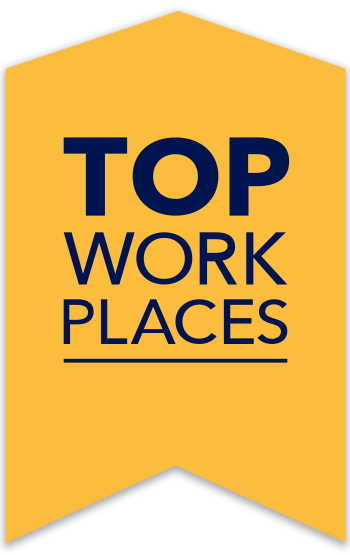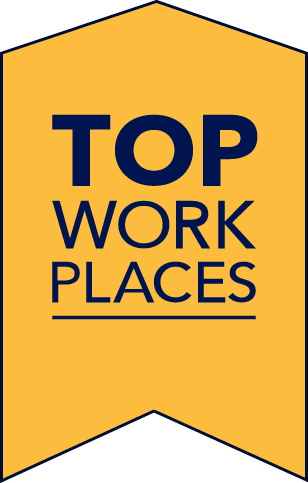Employees bring a lot to the table. Each has unique connections, experiences, and skills. Employers show appreciation for employee contributions by offering competitive compensation, benefits, professional development opportunities, and an engaging culture. Because people are the backbone of any organization, employers provide employees a value proposition in return for their commitment and motivation.
Retaining and recruiting top talent starts with a clear employee value proposition. Current employees and job seekers want to know what they will receive for their contributions- and how it compares to the competition.
Keep reading to learn about EVP and how it compares to employer brand.
What is employee value proposition?
Imagine a highly skilled job seeker is deciding between you and another employer. The critical information you share to convince them to join your team makes up your value proposition. Things like pay, benefits, training, and culture must be communicated clearly so that skilled candidates can determine which employer is the right fit.
Defining your employee value proposition is essential for recruitment and long-term engagement. To employees, it’s all about “Why should I apply here,” and then once they’re in the door, “Why should I keep working here instead of there?”
Difference between EVP and employer brand
Defining your employee value proposition is one of the most important steps in building an employer branding strategy. Branding interests people, but EVP convinces them to apply and join the team- for legitimate reasons. Saying someone can expect a specific pay range, comprehensive benefits, and competitive development opportunities adds tangibility to your brand pitch.
The importance of a strong employee value proposition
A strong employee value proposition offers many benefits for employees and employers alike. Some of those benefits include:
- Improved company culture
- Improved employee engagement
- Improved employer branding
- Improved recruitment process
- Improved transparency and expectation setting
- Reduced recruitment and turnover costs
What makes up employee value proposition?
The most successful employee value propositions revolve around pay, benefits, career development, environmental components, and workplace culture. These five building blocks cover everything employees want to know about your company.
Compensation
Compensation, pay, salary, whatever you want to call it — it’s the subset of employee value proposition that people usually talk about first. Today, it’s common for employers to include salary information in job posts.
Although not everyone does this, it shows advancements in fairness and pay transparency, which are also critical components of compensation. A great employee value proposition also defines salary satisfaction and promotion expectations so that everyone is on the same page.
Benefits
Your EVP should also include many employee benefits. Consider PTO, holiday pay, workplace flexibility, retirement savings, and health and wellness coverage. If your benefits list seems too vanilla, explore competitors’ careers pages for inspiration.
Career
If your organization offers competitive professional development, talk about it! Employees and job seekers want as many training and development opportunities as possible. Wise employers strategically use career development to help employees and the business grow together, enticing candidates even more.
Work environment
Especially today, job seekers will be eager to learn about your workplace environment. Is it in person? Remote? Hybrid? And if it is in-person, what amenities do you offer to improve employee recognition and engagement? Communicating a positive work environment with clear physical workplace flexibility expectations helps recruiting teams hire individuals who are a good fit for the company, boosting future retention.
Culture
At Top Workplaces, we’re all about culture. And employees everywhere agree, it’s one of the most important parts of a workplace. If your workplace cultivates a unique and empowering culture, it should be part of your employee value proposition. Knowing that an employer has great leadership, employee appreciation initiatives, and work-life balance make candidates want to apply themselves and their skills to your mission.
Learn more: Leadership’s Impact on Organizational Culture
Improve your employee value proposition with Top Workplaces recognition
Top Workplaces employer recognition awards are the perfect addition to your employee value proposition. Award categories like Compensation & Benefits, Great Leadership, and Professional Development boost credibility by showcasing third-party EVP validation.
And the best part? Top Workplaces awards are all based on confidential employee feedback. That’s great for recruitment and retention.

 Stand out with an award-winning
Stand out with an award-winning
